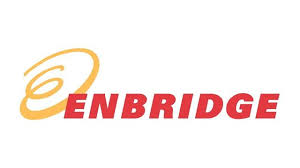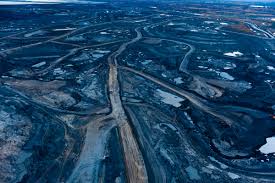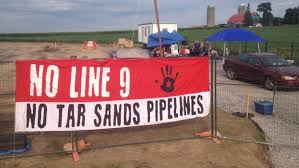In this article from the Vancouver Sun, author, Gordon Hoekstra, discusses the standing issue between Enbridge Inc. and the Firsts Nations people (of BC) regarding the construction of the proposed “$7.9-billion Northern Gateway oil and condensate pipelines”. The problem is that some First Nations groups, who own the rights to the land Enbridge Inc. plans to ground the pipeline, are strongly apposed to the idea of a mass pipeline and furthermore have voiced that they “will take whatever steps are necessary to stop the pipeline, using the courts or blocking the project directly on the land”.

“Our elders have always said you cannot eat money… The food and the land is so important for us.” says Lillian, decedent of chief Kwah.
The value Firsts Nations people place on land is intangible. Not only is it a source of food, it is a source of their culture, livelihood and personal identity. Matching the value Firsts Nations people place on their land with a dollar amount is a very tricky task for Enbridge.
The major reason why Indigenous people are opposed to the creation of pipeline is because they believe it will harm the river. However, Enbridge suggests that the risk of a spill is “remote” and shut off valves on either side of the river have been implemented in the blueprints for the pipeline in the rare case of an accident. Thus, the issue for Enbridge doesn’t seem to be the safety, rather I think the real challenge lies in convincing the First Nations people it is safe. Maybe a solution could be focusing on educating these groups on the logistics of the pipeline.

Damage caused to the Alberta Tar Sands
Because of the damage oil companies have caused to the Tar Sands, a very negative perception has been placed around oil companies regarding the environment effects they pose. As we know, altering the perception of a group of people after it has taken root is a tough task.
I personally don’t see both parties leaving happy after this dispute is resolved. I think that money will show it’s limitations and that the First Nations groups who are anti-pipeline will remain that way… at least for the time being. Expanding on what I said earlier, the only way I think the remaining First Nations groups will be on board for construction is if Enbridge can offer something that outweighs the value they place on their land. As a result, that leaves me asking myself, one: is that even possible? and two: if possible, is it an offer thats feasible for Enbridge?

Article Link